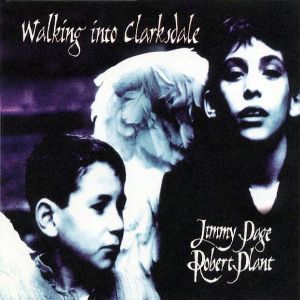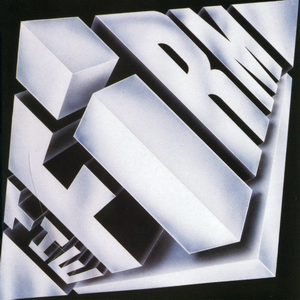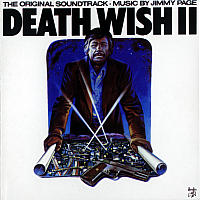 American labels knew how to recycle product in the ‘60s, and since a few months had gone by since the last album, Epic decided to release a greatest hits set by the Yardbirds. It’s only half an hour long, as were a lot of albums back then, but it really does cover their hits to date. It includes two songs from the first album, four songs from Having A Rave-Up, and only “Over Under Sideways Down” from that album. New to LP in the states were the previous year’s stellar single “Shapes Of Things” and its B-side “New York City Blues” (which opens with the same riff Jimmy Page would cop for “You Shook Me”, adding insult to Jeff Beck’s injury, but we’re getting ahead of ourselves), plus “Happenings Ten Years Time Ago”, which means the album includes performances by all three of the band’s soon-to-be-legendary lead guitarists.
American labels knew how to recycle product in the ‘60s, and since a few months had gone by since the last album, Epic decided to release a greatest hits set by the Yardbirds. It’s only half an hour long, as were a lot of albums back then, but it really does cover their hits to date. It includes two songs from the first album, four songs from Having A Rave-Up, and only “Over Under Sideways Down” from that album. New to LP in the states were the previous year’s stellar single “Shapes Of Things” and its B-side “New York City Blues” (which opens with the same riff Jimmy Page would cop for “You Shook Me”, adding insult to Jeff Beck’s injury, but we’re getting ahead of ourselves), plus “Happenings Ten Years Time Ago”, which means the album includes performances by all three of the band’s soon-to-be-legendary lead guitarists.
 Three years later, once each of those lead guitarists had become household names in households that listened to FM radio, Epic issued a double album with the inspired title Featuring Performances By Jeff Beck, Eric Clapton, Jimmy Page. With 20 songs coming in at just under an hour, it repeated nothing from the hits album—which had covered pretty much all of the songs that qualified as actual hits—and scrambled deep tracks from all the American albums in no understandable sequence, seesawing from blues to experimental. Several paragraphs of liner notes bemoaned the band’s commercial failures, but didn’t bother to detail which albums begat which songs, nor which of the performances featured which guitarist, even though each had an instrumental all to themselves. The bizarre cover art was typical of the era, and the same designer would get to work on another related project ere long.
Three years later, once each of those lead guitarists had become household names in households that listened to FM radio, Epic issued a double album with the inspired title Featuring Performances By Jeff Beck, Eric Clapton, Jimmy Page. With 20 songs coming in at just under an hour, it repeated nothing from the hits album—which had covered pretty much all of the songs that qualified as actual hits—and scrambled deep tracks from all the American albums in no understandable sequence, seesawing from blues to experimental. Several paragraphs of liner notes bemoaned the band’s commercial failures, but didn’t bother to detail which albums begat which songs, nor which of the performances featured which guitarist, even though each had an instrumental all to themselves. The bizarre cover art was typical of the era, and the same designer would get to work on another related project ere long.
 Both of these compilations would go out of print by the end of the ‘70s, and because the masters were owned by different managers depending on who produced what, licensing would continue to be wonky, and shoddy rehashes abounded overseas. Then, in 1986, the Rhino made good on their original brief to restore music to the masses with a hits collection with the hopeful title of Volume One. This set concentrated on the Giorgio Gomelsky era, with began with Clapton and covered the first two American albums, including two further tracks from Five Live Yardbirds. It did a fine job of presenting them as blues interpreters, but the contents predated some of Beck’s innovations.
Both of these compilations would go out of print by the end of the ‘70s, and because the masters were owned by different managers depending on who produced what, licensing would continue to be wonky, and shoddy rehashes abounded overseas. Then, in 1986, the Rhino made good on their original brief to restore music to the masses with a hits collection with the hopeful title of Volume One. This set concentrated on the Giorgio Gomelsky era, with began with Clapton and covered the first two American albums, including two further tracks from Five Live Yardbirds. It did a fine job of presenting them as blues interpreters, but the contents predated some of Beck’s innovations.
 While a second volume never materialized, Rhino did score a coup in the new century with Ultimate! This was another apt title, as it crammed two CDs full of just about everything, starting with their first demos, through four tracks from Five Live Yardbirds, most of the three American albums, and all key singles and B-sides, plus a rare Italian single and three fey Keith Relf solo sides. Attention to detail ensured liner notes and comprehensive discographical information, including recording dates, locations, and even engineers; who knew Eddy Offord, Roy Halee, and even Bones Howe taped this band?
While a second volume never materialized, Rhino did score a coup in the new century with Ultimate! This was another apt title, as it crammed two CDs full of just about everything, starting with their first demos, through four tracks from Five Live Yardbirds, most of the three American albums, and all key singles and B-sides, plus a rare Italian single and three fey Keith Relf solo sides. Attention to detail ensured liner notes and comprehensive discographical information, including recording dates, locations, and even engineers; who knew Eddy Offord, Roy Halee, and even Bones Howe taped this band?
This, too, is out of print, but luckily in the digital era it’s possible to stream most of the music. The original albums are out there, along with various grey-area live performances. And of course, the BBC. After scoring the rights to Roger The Engineer, Warner Archives followed another ‘90s catalog trend with the 1997 release of BBC Sessions for the first time in the US after a few years floating around elsewhere. This set presented 26 tracks from the Beck and Page eras, complete with interview snippets from the usual clipped-voiced deejays and a few tunes that never made it to wax. This too became scarce, until 2024 brought The Ultimate Live At The BBC—they sure like that adjective—box of four discs.
The Yardbirds The Yardbirds’ Greatest Hits (1967)—4
The Yardbirds Featuring Performances By Jeff Beck, Eric Clapton, Jimmy Page (1970)—3½
The Yardbirds Greatest Hits, Volume One (1964-1966) (1986)—3½
The Yardbirds Ultimate! (2001)—4
Current CD availability: none









